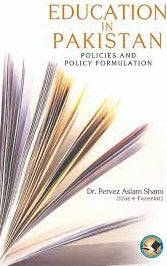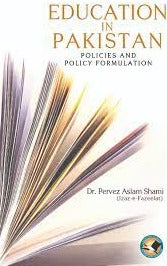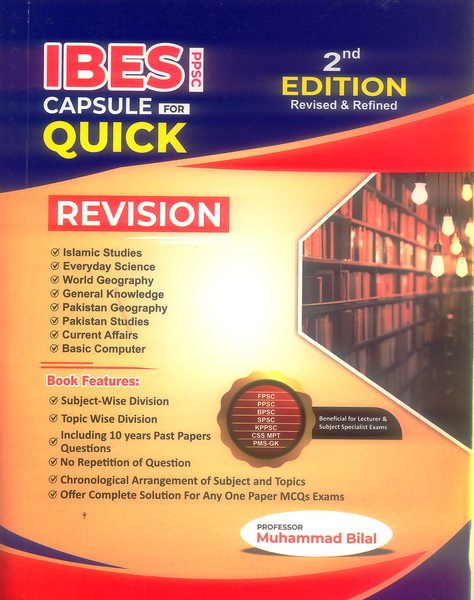Education In Pakistan: Policies and policy formulation By Dr Parvez Aslam Shami
- Publisher: EDUCATION
- Availability: Out Of Stock
- SKU: 54819
Rs.120.00
Rs.150.00
Tags: Access to Education , affordable prices , best books , best books online , Best Price , best prices , Best Selling Books , best shop , BestBuy’s , Book Shop , Book shopping , bookshop , bookshop Multan , bookshop near me , bookshop online , bookshop online Multan , bookshopPakistan , Bureaucratic Efficiency , buy online books , Convenient Shopping , Curriculum Development , digital shopping , Dr. Parvez Aslam Shami , Education Development , Education Funding , Education Sector , Education System , Educational Achievements , Educational Frameworks , Educational Infrastructure , Educational Initiatives , Educational Landscape , Educational Needs , Educational Outcomes , Educational Policy , Educational Progress , Educational Quality , Educational Reforms , Educational Research. , Equity , Federal Government , Foreign Aid , Funding , Future Directions , Girls' Education , Global Organizations , good books , good booksonline , Government Role , Inclusive Education , Innovative Practices , International Influence , Internet Shop , Investment in Education , Literacy , Literacy Rates , National Education Policies , NGOs , one stop shop , Online Book Shop , ONLINE BOOKS , Online Books Shop , online books store , Online Bookshop , Online Bookshop Pakistan , online bookstore , online shop , online shopping , Online Shopping Pakistan , OnlineShoppingPakistan , Pakistan , Pakistan Bookshop , Pakistan's Education System , PakistanBookshop , PakistanOnlineShopping , Policies , Policy Analysis , Policy Evaluation , Policy Formulation , Policy Goals , Policy Implementation , Political Stability , price cut , price-friendly Comprehensive , Provincial Government , Public Education , Public-Private Partnerships , ReasonablePrice , reduced price , Reforms , Resource Allocation , Rural Education , secure shopping , Shopping , ShopSmartPakistan , Socio-Economic Factors , Strategy , Teacher Training , Virtual Shop
Education in Pakistan has undergone various reforms and policy changes over the years, aimed at addressing the diverse educational challenges the country faces. Dr. Parvez Aslam Shami's work on education policies and policy formulation provides an in-depth analysis of these efforts, highlighting both the achievements and shortcomings in the education sector. His examination covers the historical context, the role of governmental and non-governmental organizations, and the impact of international influences on Pakistan’s education system. This comprehensive overview sheds light on the complexities of educational policy-making in Pakistan and suggests pathways for future improvements.
Key Points
1. Historical Context
The educational policies in Pakistan have evolved since the country's independence in 1947, influenced by various political and socio-economic factors.
2. Policy Evolution
Over the decades, several national education policies have been introduced, each with distinct goals and strategies aimed at improving literacy rates and educational quality.
3. Governmental Role
The federal and provincial governments play a crucial role in formulating and implementing educational policies, with varying degrees of success and challenges.
4. Non-Governmental Organizations (NGOs)
NGOs have significantly contributed to educational reforms, often filling gaps left by the government and introducing innovative educational practices.
5. International Influence
Global organizations and foreign aid have impacted Pakistan's education policies, introducing new frameworks and funding opportunities that have shaped policy directions.
6. Challenges in Implementation
Despite well-formulated policies, Pakistan faces significant challenges in policy implementation, including inadequate funding, political instability, and bureaucratic inefficiencies.
7. Curriculum Development
Efforts to develop and update the national curriculum have been ongoing, aiming to make education more relevant and inclusive.
8. Teacher Training
Teacher training programs are critical for improving educational outcomes, but they often face issues such as insufficient resources and lack of proper training infrastructure.
9. Access and Equity
Ensuring equitable access to education for all segments of the population, especially for girls and rural communities, remains a significant challenge.
10. Future Directions
Dr. Shami emphasizes the need for continuous policy evaluation and adaptation to meet the evolving educational needs of Pakistan, recommending increased investment in education and stronger public-private partnerships.
Dr. Parvez Aslam Shami's analysis underscores the multifaceted nature of educational policy-making in Pakistan, highlighting both progress and persistent obstacles. His work serves as a crucial resource for policymakers, educators, and stakeholders committed to advancing the educational landscape in Pakistan. The insights provided not only reflect on past and current efforts but also pave the way for future reforms aimed at achieving a more inclusive and effective education system.
════ ⋆★⋆ ════
Writer ✤ Dr Parvez Aslam Shami

























